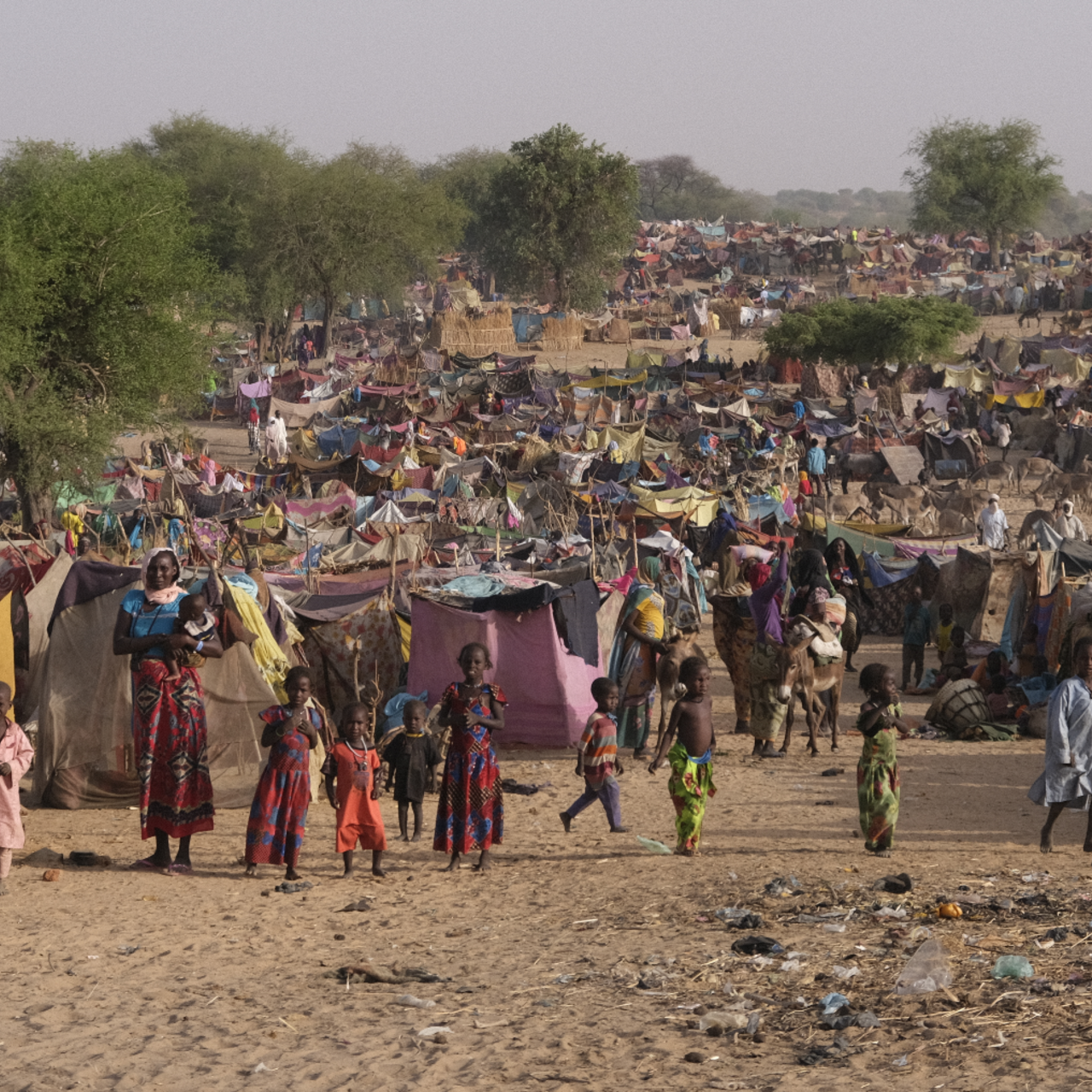
How is the war in Sudan impacting Chad?
Conflict in Sudan has forced more than 300,000 refugees to flee to neighbouring Chad.

Conflict in Sudan has forced more than 300,000 refugees to flee to neighbouring Chad.
On 15 April 2023, the Sudanese Armed Forces (SAF) clashed with the Rapid Support Forces (RSF) in Khartoum, causing 880,000 people to flee across international borders and leaving almost 3.3 million displaced inside Sudan.
More than 300,000 Sudanese refugees have sought safety in neighbouring Chad.
Although Chad has welcomed Sudanese refugees, the country faces challenges in meeting the humanitarian needs of those fleeing conflict without complete support from international leaders and donors.
Here’s what you need to know about the developing situation in Chad.
Editor's note: Due to insecurity in Sudan amidst the ongoing war, the IRC has paused many operations in Sudan. We have sustained operations in the Sudanese states of Blue Nile, Gederaf and Al Jazirah, where we are continuing to provide services to people who have been displaced.
After a military coup ousted a civilian-led transitional government in October 2021, Sudan has been under the rule of a council of generals. A significant turning point emerged in December 2022 when military leaders and key politicians signed an agreement, paving the way for the eventual reinstatement of civilian governance.
However, on 15 April 2023, intense fighting between the SAF and RSF broke out.
Fighting in urban areas like Khartoum has caught civilians in the crossfire. The conflict has also led to targeted attacks on medical facilities and the killing of 18 humanitarian workers and 12 healthcare personnel.
Learn more about the crisis in Sudan here.
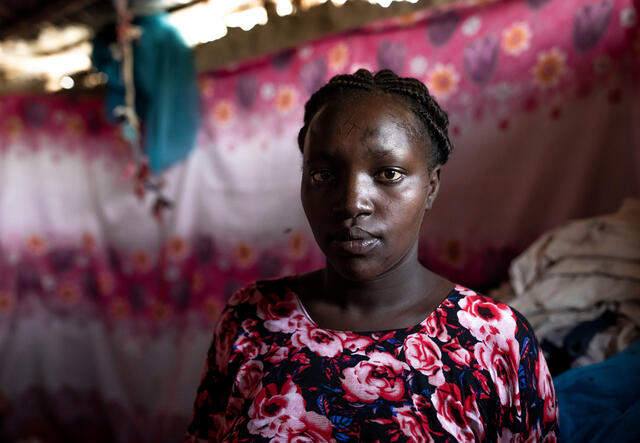
Over 3.3 million people have been displaced by the war in Sudan, with many forced to flee across international borders in search of safety and refuge. Sudanese civilians are experiencing a critical shortage of food, water, medicine and fuel, as well as limited access to electricity and communications.
Extreme levels of food insecurity and malnutrition are affecting approximately 25 million people in Sudan, making it one of the worst food insecurity crises in the world. The closure of services and shops in Khartoum has led to a shortage of clean water and food.
Life-saving services have been severely disrupted due to limited humanitarian access and relentless attacks on aid workers, hospitals and medical staff. Amidst these challenges, ensuring the safety and protection of civilians remains an utmost priority.
“IRC staff at the borders with Sudan have reported thousands of refugees living in makeshift tents with limited access to clean water and sanitation,” says Kurt Tjossem, the IRC’s vice president for East Africa.
We know that there are many uncertainties for people right now, but one thing that’s clear is the needs are immense, immediate and will be for a long time.
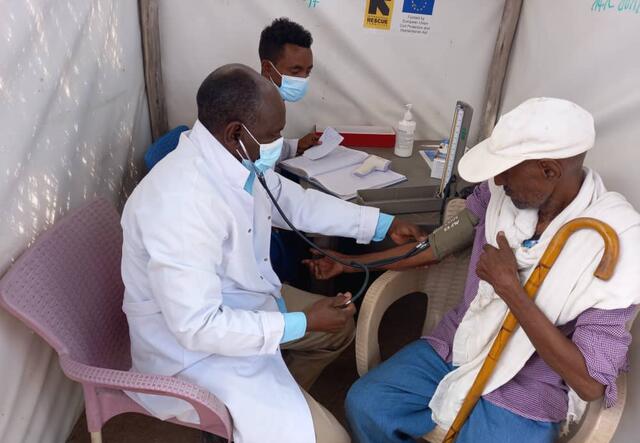
Over 300,000 refugees have fled Sudan's conflict seeking safety and refuge in Chad, joining the 580,000 already there.
“Chad has been generously welcoming in Sudanese refugees, but Chad itself is a low-income, crisis-affected country,” says IRC president and CEO, David Miliband.
According to the UNHCR, 90% of those arriving from Sudan are women and children. One-fifth of young children who have arrived in Chad are experiencing acute malnourishment, which is potentially life-threatening.
“The fact that women and children make up such a large proportion of the new arrivals in Chad is particularly worrying because they are often the most vulnerable groups in conflict situations,” explains Aleksandra Roulet-Cimpric, the IRC’s country director in Chad. “Women and children are at greater risk of violence, exploitation, and abuse, and they may also face difficulties accessing basic necessities such as food, water and healthcare.”
Despite the urgent need to support Sudanese refugees arriving in Chad, international donors have fallen short of funding the humanitarian response in the country.
“Out of the requested $226 million USD to respond to this crisis, only a mere 11% of the required funding has been raised,” explains Mwiti Mungania, the IRC’s emergency country director in Chad. “Urgent action is needed to bridge this funding gap and ensure that the necessary resources reach those in desperate need.”
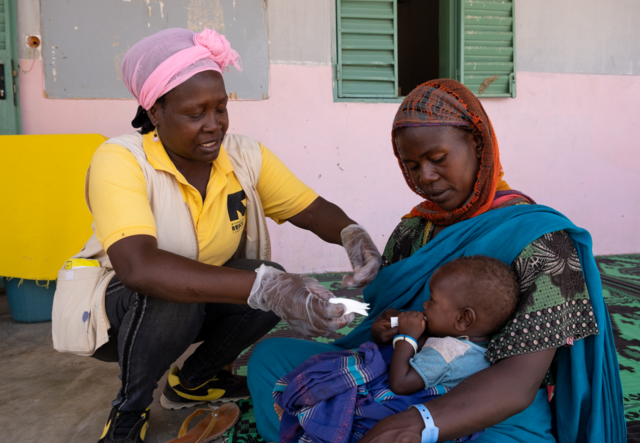
The International Rescue Committee (IRC) has been providing vital humanitarian aid in Chad since 2004. After the war in Sudan broke out in April 2023, the IRC promptly set up water stations to assist severely dehydrated people arriving across the border, along with establishing mobile health clinics to address the health needs of refugees.
In addition to bolstering our emergency response, the IRC has scaled up health and protection programmes in Chad.
We have set up four mobile clinics in transition sites such as Borota and Adré. These clinics provide essential services, including primary healthcare, nutrition, mental health and psychosocial support, sexual and reproductive health services, and protection programs.
Additional programming includes the provision of safe water and sanitation facilities, and the promotion of hygienic practices, to prevent the spread of disease and promote the overall well-being of refugees.
The IRC is actively supporting the safe relocation of refugees in Chad by providing ambulances and scaling up essential services in refugee camps.
We urge donor governments to extend their support to Sudanese refugees in Chad and to help the IRC meet their needs.
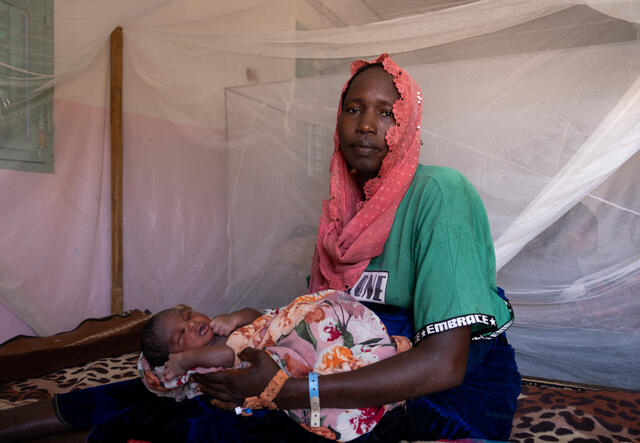
880,000 Sudanese refugees have been forced to flee the country and more than 3.3 million have become internally displaced. While neighboring countries like Chad are welcoming refugees, additional support is critical to meet their essential needs.
Consider donating to the IRC to support our programming in Chad and to help refugees around the world.
*Last name excluded for privacy.